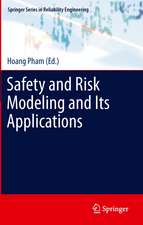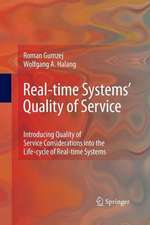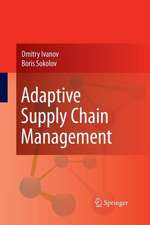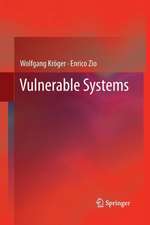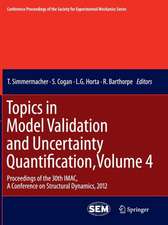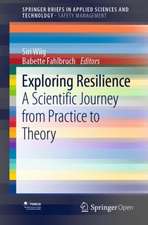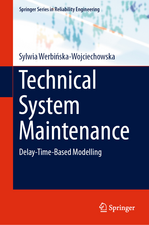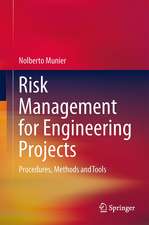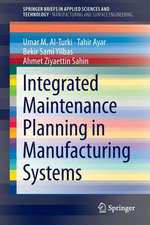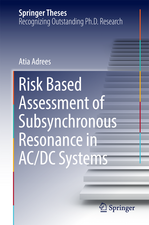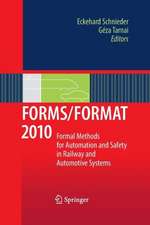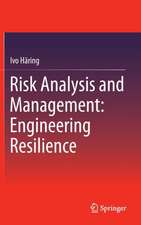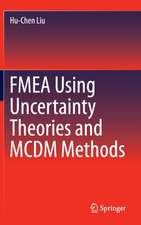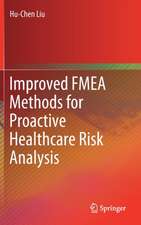Applied Civil Engineering Risk Analysis
Autor Robb Eric S. Mossen Limba Engleză Hardback – 15 aug 2019
- Expands on the class-tested pedagogy from the first edition with more material and more examples;
- Broadens understanding with simulations coded both in Matlab and inR;
- Features new chapters on spatial variability and Bayesian methods;
- Emphasizes techniques for estimating the influence of uncertainty on the probability of failure
| Toate formatele și edițiile | Preț | Express |
|---|---|---|
| Paperback (1) | 382.18 lei 6-8 săpt. | |
| Springer International Publishing – 16 aug 2020 | 382.18 lei 6-8 săpt. | |
| Hardback (1) | 396.09 lei 38-44 zile | |
| Springer International Publishing – 15 aug 2019 | 396.09 lei 38-44 zile |
Preț: 396.09 lei
Preț vechi: 489.00 lei
-19% Nou
Puncte Express: 594
Preț estimativ în valută:
75.82€ • 82.38$ • 63.73£
75.82€ • 82.38$ • 63.73£
Carte tipărită la comandă
Livrare economică 17-23 aprilie
Preluare comenzi: 021 569.72.76
Specificații
ISBN-13: 9783030226794
ISBN-10: 3030226794
Pagini: 182
Ilustrații: XI, 180 p. 110 illus., 56 illus. in color.
Dimensiuni: 155 x 235 x 18 mm
Greutate: 0.41 kg
Ediția:2nd ed. 2020
Editura: Springer International Publishing
Colecția Springer
Locul publicării:Cham, Switzerland
ISBN-10: 3030226794
Pagini: 182
Ilustrații: XI, 180 p. 110 illus., 56 illus. in color.
Dimensiuni: 155 x 235 x 18 mm
Greutate: 0.41 kg
Ediția:2nd ed. 2020
Editura: Springer International Publishing
Colecția Springer
Locul publicării:Cham, Switzerland
Cuprins
Introduction.- Data Analysis/Sample Statistics.- Elementary Probability and Set Theory.- Random Variables and Probability Distributions.- Functions of Random Variables: Error Propagation.- Component Reliability Analysis.- System Reliability Analysis.- Introduction to Decision Analysis.- Reliability-Based Codes (LRFD).- Spatial Variability.- Bayesian Updating.- References.- Appendix A.- Appendix B.- Appendix C.
Notă biografică
Robb Eric S. Moss, Ph.D., P.E., F.ASCE, is a professor in the Civil and Environmental Engineering Department at California Polytechnic State University, San Luis Obispo, California. He earned a Ph.D. from U.C. Berkeley in the field of geotechnical earthquake engineering, with minors in engineering seismology and structural reliability. His research and consulting focuses on the physics and probability of natural hazards such as; strong ground motions, seismic soil liquefaction, surface fault rupture, seismic induced landslides, debris flow, and others. His teaching includes undergraduate and graduate courses in; geotechnical engineering, engineering risk analysis, geological engineering, earthquake engineering, and others.
Textul de pe ultima copertă
This updated edition retains its introduction to applied fundamental statistics, probability, reliability, and decision theory as these pertain to problems in Civil Engineering. The new edition adds an expanded treatment of systems reliability, Bayesian methods, and spatial variabililty, along with additional example problems throughout. The book provides readers with the tools needed to determine the probability of failure, and when multiplied by the consequences of failure, illustrates how to assess the risk of civil engineering problems. Presenting methods for quantifying uncertainty that exists in engineering analysis and design, with an emphasis on fostering more accurate analysis and design, the text is ideal for students and practitioners of a range of civil engineering disciplines.
- Expands on the class-tested pedagogy from the first edition with more material and more examples;
- Broadens understanding with simulations coded both in Matlab andin R;
- Features new chapters on spatial variability and Bayesian methods;
- Emphasizes techniques for estimating the influence of uncertainty on the probability of failure.
Caracteristici
Expands on the class-tested pedagogy from the first edition with more material and more examples; Broadens understanding with simulations coded both in Matlab and in R; Features new chapters on spatial variability and Bayesian methods; Emphasizes techniques for estimating the influence of uncertainty on the probability of failure.

